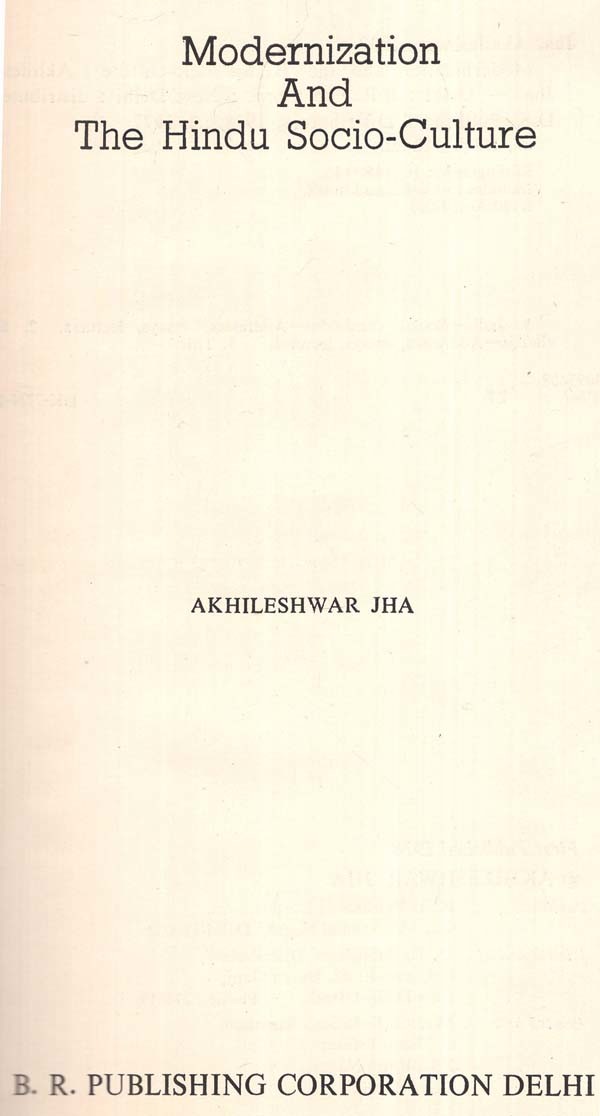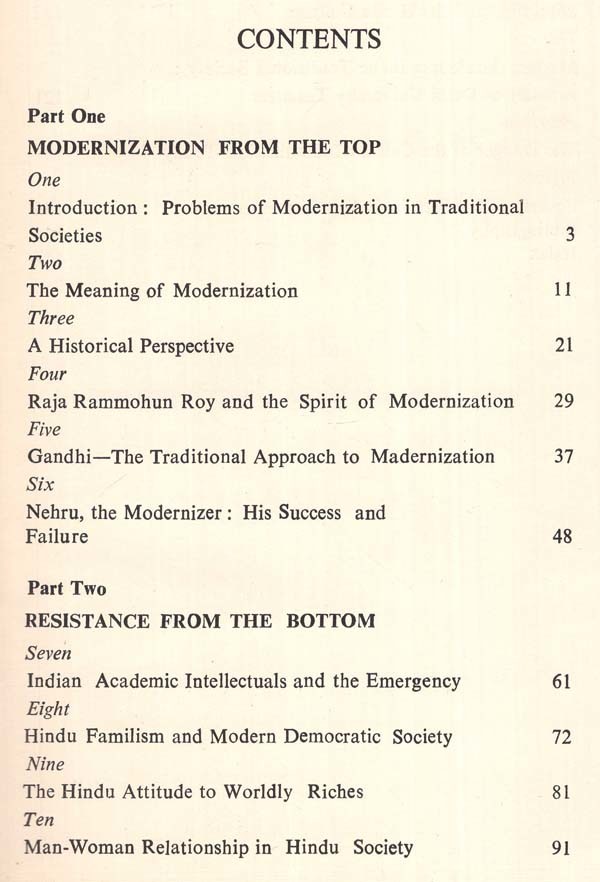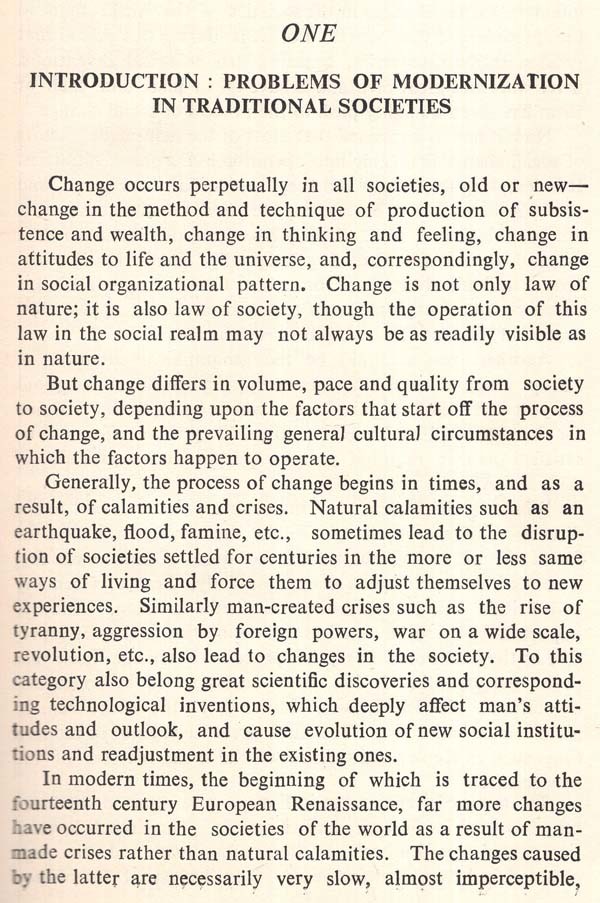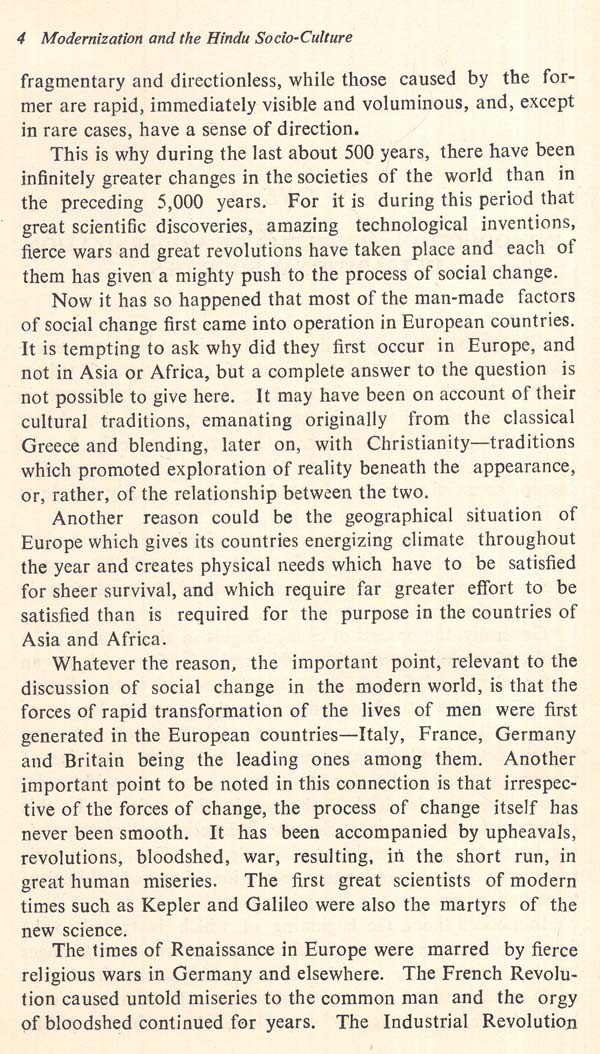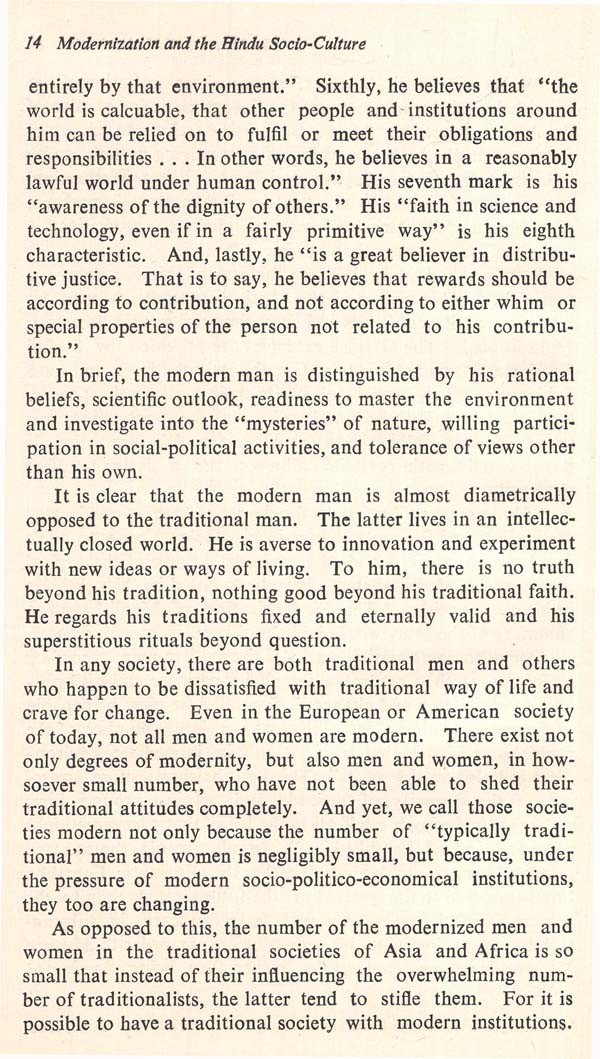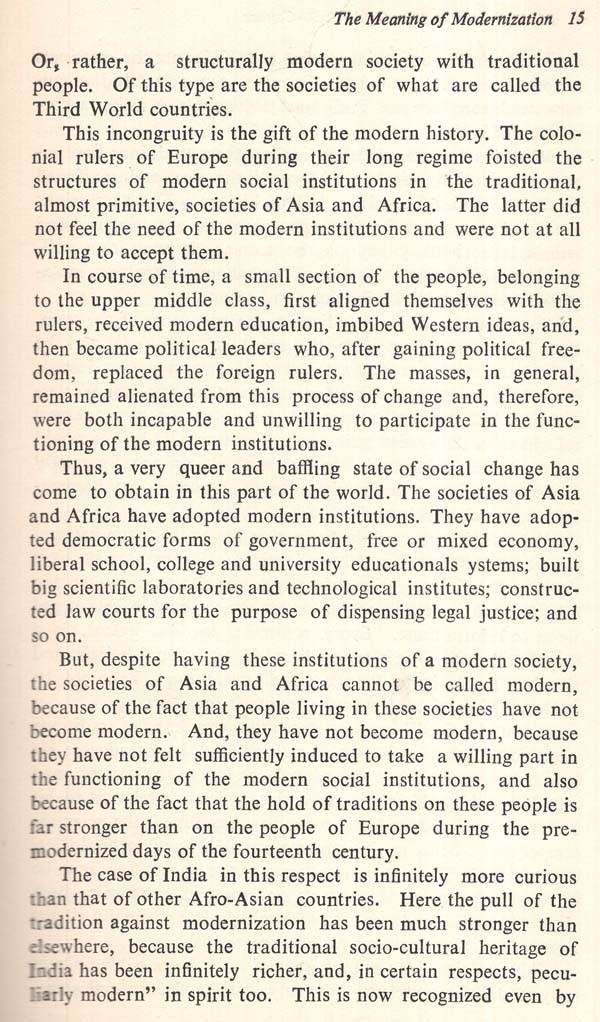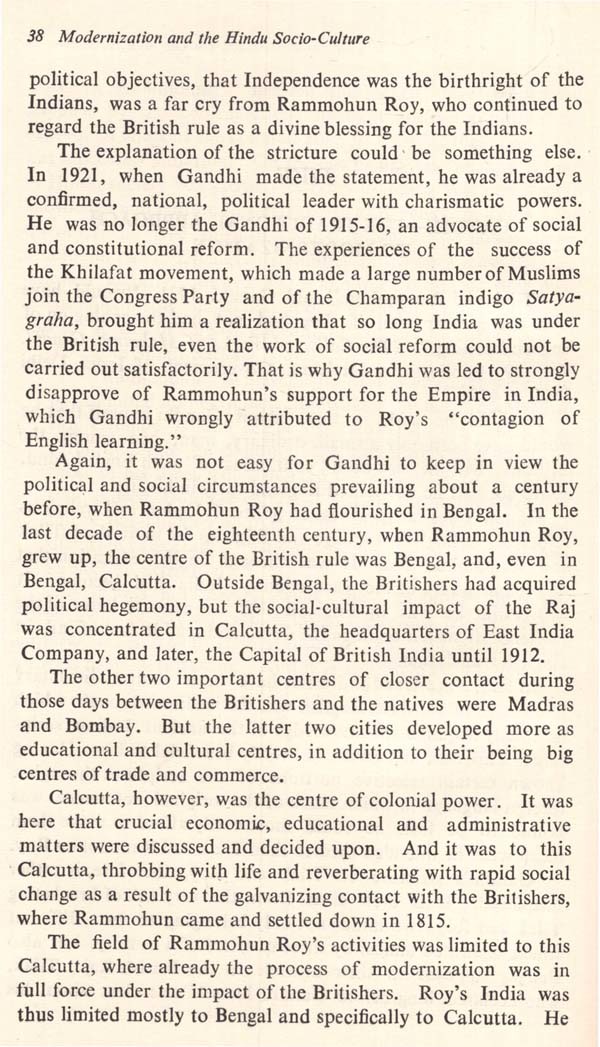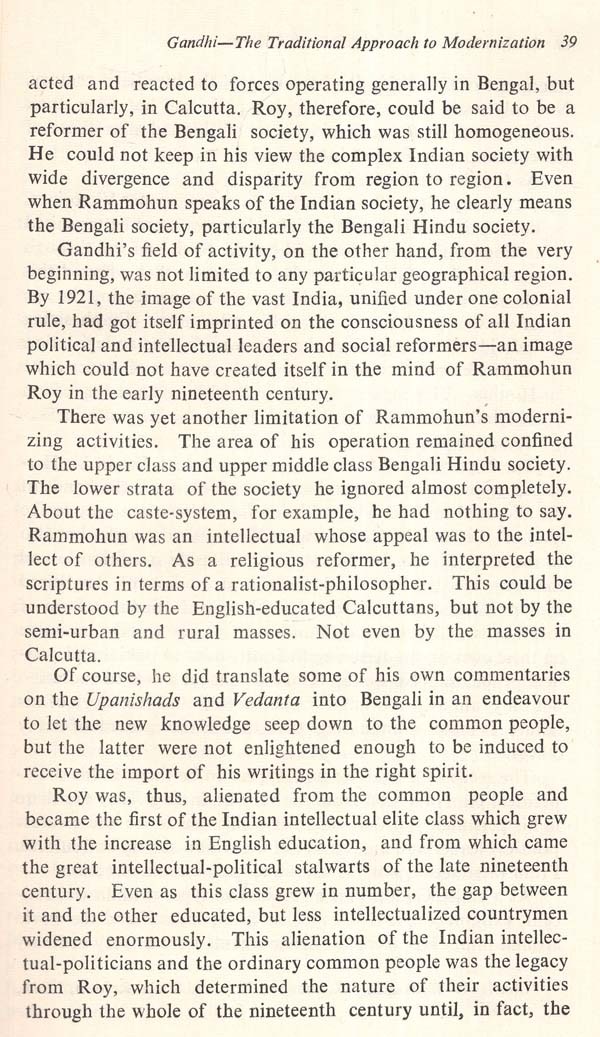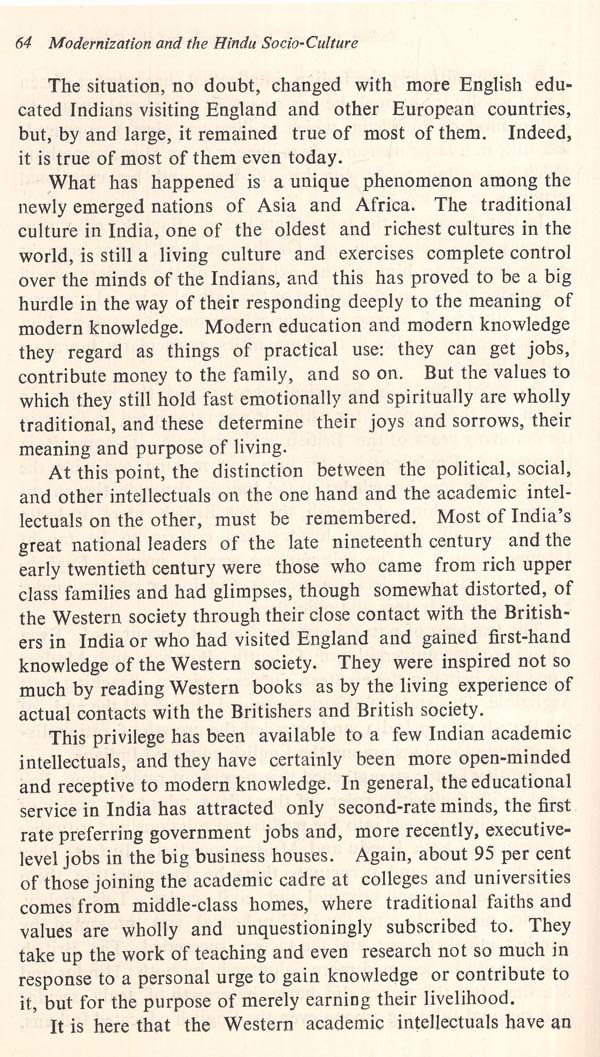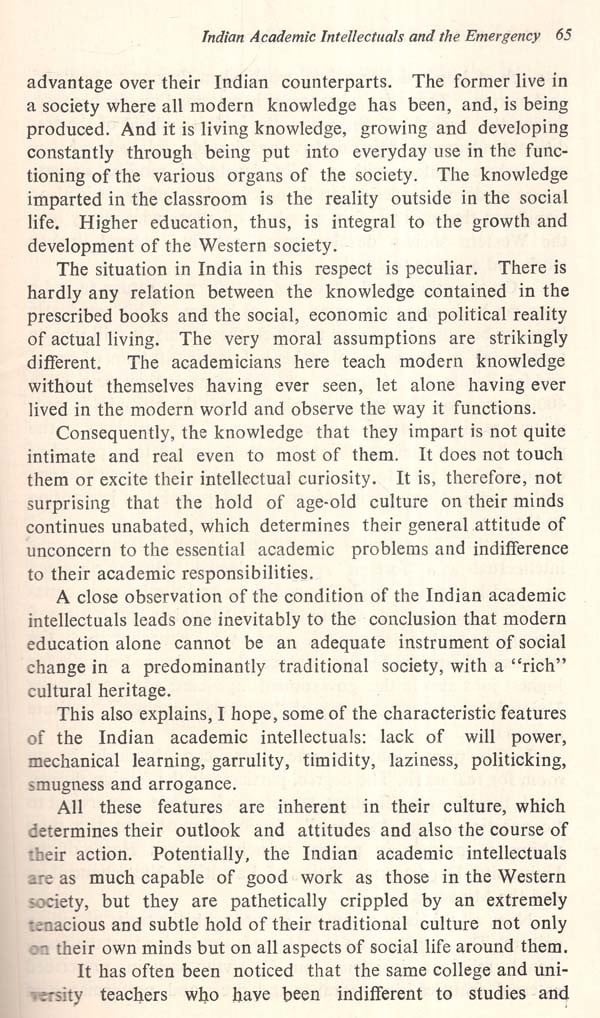
Modernization And The Hindu Socio-Culture (An Old And Rare Book)
Book Specification
| Item Code: | UAR581 |
| Author: | Akhileshwar Jha |
| Publisher: | B.R Publishing Corporation |
| Language: | English |
| Pages: | 151 |
| Cover: | HARDCOVER |
| Other Details | 8.90 X 5.60 inch |
| Weight | 300 gm |
Book Description
This book is born out of reflections on the historical process of modernization of the Afro-Asian societies, particularly the Indian society, first initiated by the colonial governments. That this process, for good or for ill, is irreversible should be clear from even a cursory glance at modern world history. Perhaps, it is for good that it is so.
The problems the Afro-Asian countries in general, and India, in particular, are facing today cannot be solved by the outdated means and methods of yesterday. Each one of the problems is gigantic. With population explosion and education expansion, each is constantly growing in bulk, and calls for more scientific and technological solution than the tradition bound societies have so far sought. In fact, the only slogan appropriate for the developing societies is: "Modernize or Perish". In India, Jawaharlal Nehru's call, "Produce or Perish" meant actually the same thing, for Nehru was convinced of the need for total modernization of the entire Indian social system. Unfortunately, however, the socio-political goal of total modernization has never been whole-heartedly accepted by the Indian social and political elites. There have been many reasons for this: the influence of Mahatma Gandhi on the national thinking, lack of material resources, and, above all, the un modernizing traditional Hindu socio-culture, which conditions the entire Indian thinking on social, economic and political issues.
Lack of clarity of views on the need of adopting the goal of total modernization of the society has led to confusion of values with pathetic consequences. While certain segments of the Indian society have continued to retain in toto, even after Independence, whatever modern framework they had received from the British rulers, the more essential aspects of the Indian society continue to be traditional, which adversely affect the functioning of the superficially modernized segments.
The Indian colleges and universities, for example, are model led after the modern institutions of higher learning in Europe and America, but they have failed to produce the desired results because those parts of the society from which the students and teachers come are still wholly traditional.
**Contents and Sample Pages**
